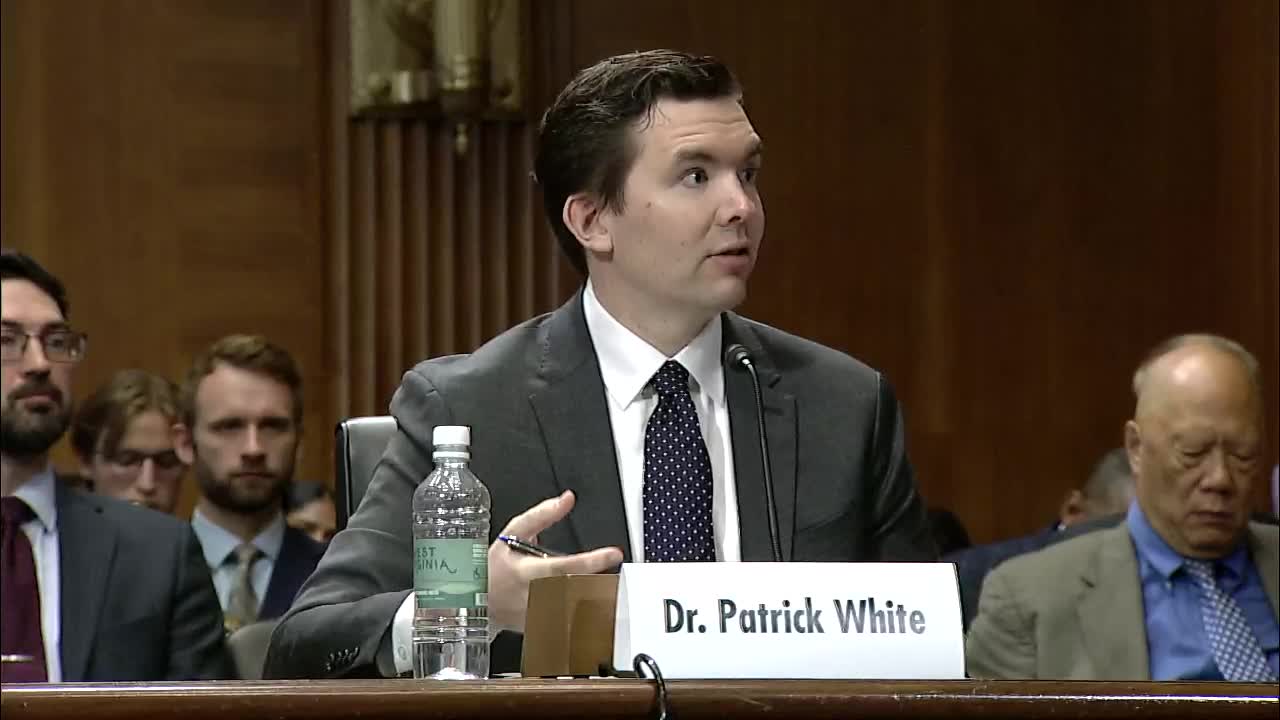Fusion Energy Revolution Sparks Urgent Call for Innovation and Collaboration
September 19, 2024 | Energy and Natural Resources: Senate Committee, Standing Committees - House & Senate, Congressional Hearings Compilation
This article was created by AI summarizing key points discussed. AI makes mistakes, so for full details and context, please refer to the video of the full meeting. Please report any errors so we can fix them. Report an error »

In a recent government meeting focused on the future of fusion energy, key stakeholders discussed the importance of innovation, supply chain development, and public-private partnerships in advancing this promising technology. The dialogue highlighted the need for supportive policies, including tax credits and production incentives, to foster a thriving fusion energy industry.
Experts emphasized that while various technologies, such as high-performance capacitors and superconducting magnets, are essential for fusion development, a singular focus on one technology could hinder broader industry growth. Instead, a comprehensive approach that encourages exploration of diverse technologies is crucial.
A significant portion of the discussion centered on the differences between fusion and fission energy, particularly regarding waste management. Participants noted that fusion produces less long-lived radioactive waste compared to fission, which has waste that can remain hazardous for thousands of years. For instance, the half-life of tritium, a byproduct of fusion, is only 12.3 years, compared to approximately 24,000 years for fission waste. This distinction presents an opportunity for fusion to be viewed as a more sustainable energy source.
The meeting also underscored the necessity of building a robust manufacturing network for fusion technology, which would involve collaboration with international partners. This network is seen as vital for ensuring that the U.S. remains competitive in the global fusion landscape.
As the conversation progressed, the need for strategic planning was reiterated, with stakeholders calling for immediate action to address future challenges in the fusion sector. The potential for fusion to contribute to decarbonization efforts, particularly in industries like petrochemicals, was also highlighted, indicating a growing interest in fusion as a viable solution for reducing carbon emissions.
Overall, the meeting reflected a collective commitment to advancing fusion energy, with a focus on innovation, collaboration, and effective waste management strategies to pave the way for a sustainable energy future.
Experts emphasized that while various technologies, such as high-performance capacitors and superconducting magnets, are essential for fusion development, a singular focus on one technology could hinder broader industry growth. Instead, a comprehensive approach that encourages exploration of diverse technologies is crucial.
A significant portion of the discussion centered on the differences between fusion and fission energy, particularly regarding waste management. Participants noted that fusion produces less long-lived radioactive waste compared to fission, which has waste that can remain hazardous for thousands of years. For instance, the half-life of tritium, a byproduct of fusion, is only 12.3 years, compared to approximately 24,000 years for fission waste. This distinction presents an opportunity for fusion to be viewed as a more sustainable energy source.
The meeting also underscored the necessity of building a robust manufacturing network for fusion technology, which would involve collaboration with international partners. This network is seen as vital for ensuring that the U.S. remains competitive in the global fusion landscape.
As the conversation progressed, the need for strategic planning was reiterated, with stakeholders calling for immediate action to address future challenges in the fusion sector. The potential for fusion to contribute to decarbonization efforts, particularly in industries like petrochemicals, was also highlighted, indicating a growing interest in fusion as a viable solution for reducing carbon emissions.
Overall, the meeting reflected a collective commitment to advancing fusion energy, with a focus on innovation, collaboration, and effective waste management strategies to pave the way for a sustainable energy future.
View full meeting
This article is based on a recent meeting—watch the full video and explore the complete transcript for deeper insights into the discussion.
View full meeting